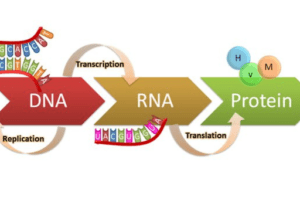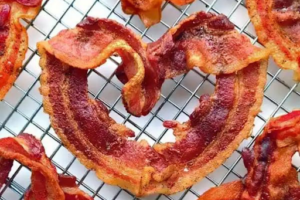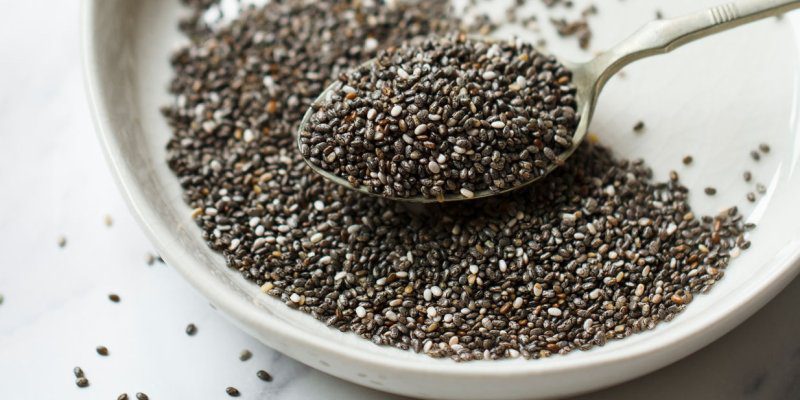Do you want to know what are chia seeds? If you’re looking for a simple and easy way to add nutrients to your daily diet, then chia seeds might be the answer you’re searching for.
Chia seeds are one of the most nutritious foods that you can add to your diet, and they have been gaining popularity over the years.
These tiny seeds pack a punch of nutrients that can provide numerous health benefits. In this blog post, we will dive into the world of chia seeds and explore what makes them so special.
Let’s get started!
The History of Chia Seeds
The history of chia seeds dates back thousands of years to ancient civilizations in Mexico and Guatemala, including the Aztecs and Mayans.
These civilizations used chia seeds not only as a food source, but also for their medicinal properties.
The Aztecs, in particular, held chia seeds in high regard, calling them “running food” because they believed they provided long-lasting energy.
Chia seeds were a staple in their diets, and they were often ground into flour to make tortillas, tamales, and porridge.
In addition to their nutritional value, chia seeds were also used for medicinal purposes. They were believed to have a variety of healing properties, and were used to treat ailments such as joint pain, skin conditions, and intestinal issues.
When the Spanish colonized Mexico in the 16th century, they attempted to suppress the use of chia seeds and other traditional foods in favor of European staples such as wheat and barley. However, chia seeds continued to be grown and used by indigenous communities.
In recent years, chia seeds have experienced a resurgence in popularity due to their impressive nutritional profile.
They are now grown and consumed around the world, and are often used as a health food and dietary supplement.
What are Chia Seeds?
Chia seeds are small, black and white seeds that come from the plant Salvia hispanica, which is a member of the mint family.
They are rich in fiber, protein, omega-3 fatty acids, antioxidants, and minerals like calcium, magnesium, and phosphorus.
Chia seeds are gluten-free, and they have a unique ability to absorb water and form a gel-like substance, which makes them an excellent addition to smoothies, puddings, and baked goods.
They are also low in calories and carbohydrates, making them a great addition to any diet.
Plus chia seeds have a mild, nutty flavor and can be easily incorporated into a variety of dishes.
Nutritional Benefits of Chia Seeds
Chia seeds are a nutritional powerhouse that can provide numerous health benefits. Here are some of the key nutrients found in chia seeds:
- Fiber:
A single ounce (28 grams) of chia seeds contains a whopping 10 grams of fiber, which is nearly half of the recommended daily intake for adults.
This high fiber content helps to promote regularity and improve digestion, and may also help to lower cholesterol levels and reduce the risk of heart disease.
- Protein:
Chia seeds are also a great source of protein, with one ounce containing 4.7 grams.
This makes them a popular choice for vegetarians and vegans who may struggle to get enough protein from plant-based sources.
Protein is essential for muscle growth and repair, and can also help to keep you feeling full and satisfied between meals.
- Omega-3 Fatty Acids:
They are also a rich source of omega-3 fatty acids. These essential fatty acids are important for brain health and can also help to reduce inflammation in the body.
One ounce of chia seeds contains 5 grams of omega-3s, which is higher than many other plant-based sources of these important nutrients.
- Antioxidants:
Chia seeds are rich in antioxidants like flavonoids, which can help to protect the body against oxidative stress and reduce the risk of chronic diseases.
How to Incorporate Chia Seeds into Your Diet
Chia seeds are incredibly versatile and can be incorporated into a variety of dishes, making them an easy addition to your diet.
Here are some simple ways to add chia seeds to your meals and snacks:
- Add chia seeds to your smoothies for a protein and fiber boost.
- Mix chia seeds with almond milk and fruit to create a delicious chia pudding.
- Sprinkle chia seeds on top of your oatmeal or yogurt for added crunch and nutrition.
- Use chia seeds as an egg substitute in baking recipes.
- You can also make chia seeds energy balls. There are a lot of recipes available over the internet.
Overall, chia seeds are incredibly easy to incorporate into your diet and can be added to a variety of dishes.
Whether you sprinkle them on top of your breakfast or use them as an egg substitute in your baking.
Chia seeds are a simple way to boost your nutrient intake and support your overall health.
Does Chia Seeds Have Any Potential Side Effects?
While chia seeds are generally considered safe and well-tolerated by most people, there are a few potential side effects to be aware of.
Some people may experience gastrointestinal discomfort, such as bloating, gas, or stomach cramps, after consuming chia seeds.
This is often due to the high fiber content of chia seeds, which can be difficult to digest in large amounts.
Chia seeds have blood-thinning properties, which means that they may interact with certain medications, such as blood thinners.
If you are taking any medication, it’s important to speak with your healthcare provider before adding chia seeds to your diet.
Finally, some people may be allergic to chia seeds. Symptoms of a chia seed allergy can include itching, swelling, hives, and difficulty breathing.
If you experience any of these symptoms after consuming chia seeds, seek medical attention immediately.
Where to Buy Chia Seeds?
Chia seeds can be found in most health food stores and online. When purchasing chia seeds, look for organic and non-GMO options to ensure that you are getting the highest quality seeds.
It’s also important to store chia seeds in a cool, dry place to prevent them from going rancid.
Does Chia Seeds Help in Weight Loss?
Chia seeds are often touted as a weight loss aid due to their high fiber content and ability to absorb water.
When consumed, the fiber in chia seeds absorbs water and forms a gel-like substance in the stomach, which can help to increase feelings of fullness and reduce appetite.
In one small study, participants who consumed chia seeds for 12 weeks experienced a significant reduction in body weight compared to those who consumed a placebo.
However, more research is needed to determine the long-term effects of chia seeds on weight loss.
It’s also worth noting that while chia seeds can be a helpful addition to a weight loss diet, they are not a magic solution.
To lose weight, it’s important to maintain a calorie deficit by consuming fewer calories than you burn through physical activity and everyday tasks.
Incorporating chia seeds into a healthy, balanced diet and exercise routine may help to support weight loss efforts, but they should not be relied on as a sole method for weight loss
Final Thoughts
Now that you know what chia seeds are and how they can benefit your health, it’s time to start incorporating them into your diet.
Whether you add them to your morning smoothie, sprinkle them on top of your salad, or use them as an egg substitute in your baking, the possibilities are endless.
Personally, I love adding chia seeds to my oatmeal in the morning. It’s a quick and easy way to boost my fiber and protein intake, and it keeps me feeling full and satisfied until lunchtime.
I also love using chia seeds in my baking, as they add a nutritious twist to my favorite recipes.
So, what are you waiting for? Give chia seeds a try and see how they can benefit your health and wellbeing. Your body will thank you for it!







